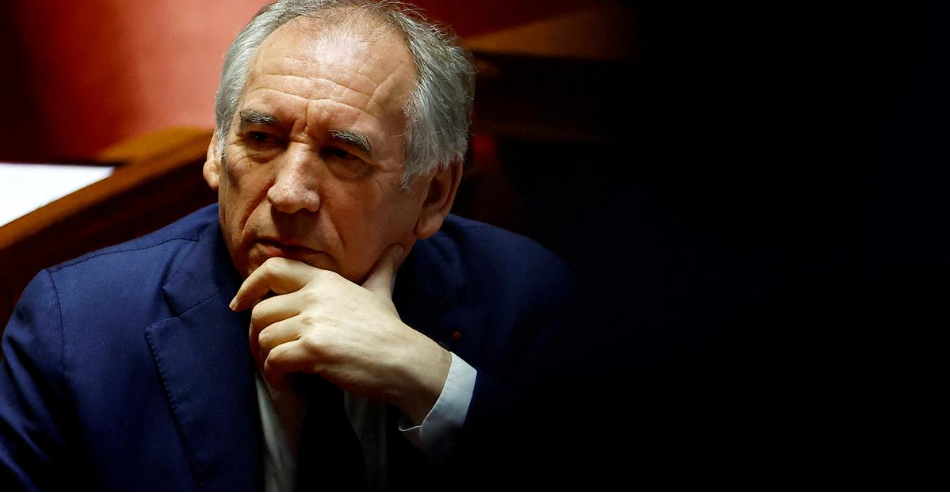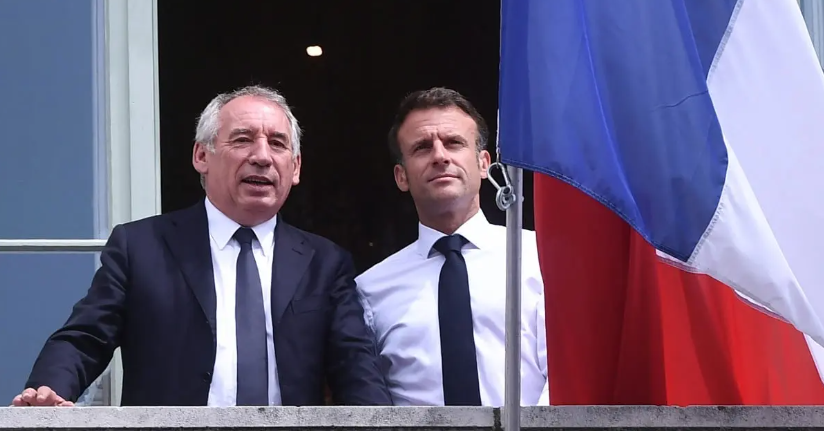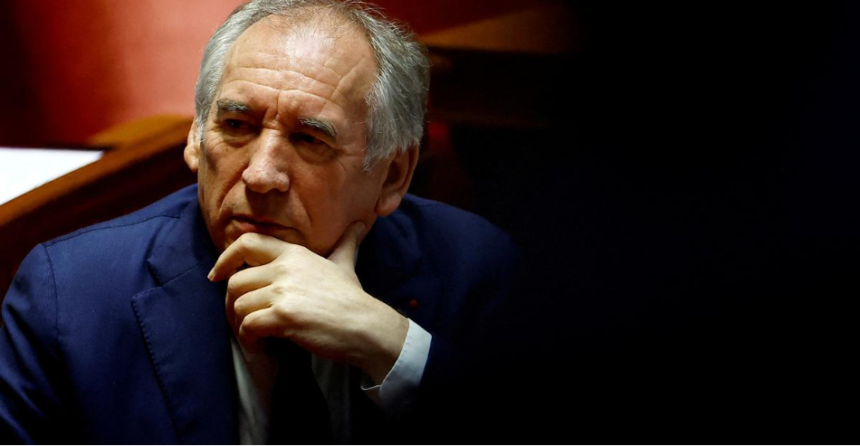1. Introduction: Political Storm in France
Discontent in France newly appointed Prime Minister, François Bayrou, finds himself in troubled waters as a recent poll reveals widespread dissatisfaction among citizens. Nearly two-thirds of French people expressed their unhappiness with the new Prime Minister’s early tenure, marking a challenging start for his administration. This level of discontent underscores growing frustrations in France over governance, economic stagnation, and political leadership.
This article delves into the key reasons behind the public’s displeasure, examines the implications for President Emmanuel Macron’s government, and explores possible outcomes as France navigates this politically volatile moment.  For the more information click on this link
For the more information click on this link
2. François Bayrou: A Brief Overview of the New PM
2.1. Political Career and Credentials
François Bayrou, a seasoned politician and leader of the Democratic Movement (MoDem), is no stranger to French politics.
- Career Milestones: Bayrou served as a Minister of National Education and has been a vocal proponent of centrist policies.
- Alignment with Macron: A long-time ally of President Macron, Bayrou’s appointment was expected to bring stability to the administration.
2.2. Hopes vs. Reality
When appointed, Bayrou was seen as a potential bridge-builder capable of addressing partisan divides. However, his early weeks have not lived up to expectations, Discontent in France leaving many citizens disillusioned.
3. Public Dissatisfaction: Key Reasons
3.1. Economic Challenges
France faces numerous economic hurdles, including rising unemployment, inflation, and slowing growth.
- High Inflation Rates: Citizens struggle with surging costs of living, particularly in energy and food.
- Labor Unrest: Recent strikes and protests have highlighted workers’ dissatisfaction with government policies.
- Many blame Bayrou for failing to propose effective solutions during his initial days in office.
3.2. Polarized Political Climate
The French political landscape is marked by division, with dissatisfaction across the ideological spectrum.
- Left-Wing Concerns: Many view Bayrou as too conservative, accusing him of prioritizing business interests over social welfare.
- Right-Wing Criticism: Others feel he has not been firm enough on issues such as immigration and national security.
3.3. Lack of Public Engagement
- Critics point to Bayrou’s perceived aloofness and lack of meaningful engagement with ordinary citizens.
- His communication strategy has been described as “detached,” fueling perceptions of an out-of-touch leadership.
3.4. Legacy of Governance
Some dissatisfaction stems not from Bayrou himself but from broader frustrations with President Macron’s administration.
- Macron’s reformist agenda, including controversial pension changes, has been divisive, and Bayrou is viewed as an extension of these policies.
4. The Poll: Understanding the Numbers
4.1. Details of the Survey
- Source: The poll was conducted by one of France’s leading agencies, surveying a broad cross-section of citizens.
- Key Finding: 64% of respondents expressed dissatisfaction with Prime Minister Bayrou, while only 20% reported a positive opinion.
4.2. Demographic Breakdown
- Younger citizens (ages 18–35) were the most dissatisfied, citing issues related to unemployment and climate inaction.
- Retirees showed relatively more support, largely due to hopes for economic stability under Bayrou.
4.3. Historical Context
- This level of initial dissatisfaction is unprecedented compared to previous prime ministers, reflecting widespread unease.
5. Implications for the Macron Administration
5.1. Weakening Political Capital
The high dissatisfaction rates weaken Macron’s ability to implement reforms or rally public support.
- Key Reforms at Stake: Macron’s economic modernization agenda, Discontent in France including labor market adjustments, faces mounting resistance.
5.2. Opposition Gaining Ground
The political opposition has seized on the poll results to criticize the government, portraying it as out of touch.
- Far-right leader Marine Le Pen has labeled Bayrou’s leadership as “ineffective,” Discontent in France while leftist leader Jean-Luc Mélenchon calls for a people-centered approach.
5.3. Potential Cabinet Instability
Dissatisfaction with Bayrou could spill over into other parts of Macron’s cabinet, creating instability in governance.
6. Challenges Ahead for Bayrou
6.1. Economic Reforms
To win back public trust, Bayrou needs to address key economic concerns with tangible solutions.
- Policies focusing on wage growth, affordable energy, Discontent in France and employment opportunities could provide much-needed relief.
6.2. Public Engagement
Greater visibility and communication with citizens are essential.
- Holding town halls and addressing grievances directly could help soften the public’s skepticism.
6.3. Navigating Political Divisions
- Building coalitions and finding middle-ground policies to address polarized perspectives will be critical.
6.4. Addressing Global Challenges
France’s leadership role in global affairs, Discontent in France such as climate policy and European Union negotiations, requires Bayrou to step up.
7. Public Perspective: Voices from the Streets
7.1. Unmet Expectations
Many citizens feel that Bayrou has not lived up to the promises made during his appointment.
- A Paris resident lamented, “We need someone who listens to the people, Discontent in France not another technocrat.”
7.2. Hope for the Future
Some, however, believe Bayrou deserves more time.
- A business owner in Lyon noted, “He has a track record of getting things done. Let’s give him a chance.”
8. Lessons from Past Prime Ministers
- Comparing Bayrou’s initial reception with his predecessors provides key lessons:
- Edouard Philippe: Overcame initial skepticism through effective pandemic management.
- Jean Castex: Focused on regional priorities, earning local support.
8.1. Can Bayrou Turn It Around?
Historical precedent suggests that while a challenging start is difficult to overcome, Discontent in France it’s not impossible with the right strategy.  For the more information click on this link
For the more information click on this link
9. Global Repercussions
9.1. Impact on EU Leadership
As a key player in the European Union, instability in France could affect EU policymaking, particularly on economic and climate issues.
9.2. France’s Global Standing
- Continued domestic dissatisfaction could hinder Discontent in France ability to project influence on global platforms.
10. Conclusion: A Test of Leadership
François Bayrou’s early tenure as Prime Minister has been marked by immense challenges, Discontent in France from economic discontent to political polarization. The recent poll results reflect widespread dissatisfaction but also present an opportunity for reflection and recalibration.
Bayrou’s ability to navigate these turbulent waters will determine not only his political future but also the trajectory of President Macron’s government. With decisive action, a commitment to public engagement, Discontent in France and solutions-oriented governance, Bayrou can work toward regaining public trust and stabilizing France’s political climate. ALSO READ:- China Condemns U.S. Military Aid to Taiwan, Asserts Sovereignty Over ‘Red Line’ 2024






1 win http://www.familyclub.borda.ru/?1-6-0-00002163-000-0-0-1743051813 .
1wi https://familyclub.borda.ru/?1-6-0-00002163-000-0-0-1743051813/ .
сайт 1win официальный сайт вход http://www.familyclub.borda.ru/?1-6-0-00002163-000-0-0-1743051813 .
mostbets mostbets .
мостбет https://www.mostbet6006.ru .
1 vin официальный сайт http://1win6001.ru .
1win вход на сайт http://1win6001.ru/ .
казино онлайн kg https://mostbet6006.ru .
1win.pro https://www.1win6001.ru .
1win партнерка вход 1win партнерка вход .
вход 1win http://www.1win6049.ru .
1вин бет официальный сайт 1вин бет официальный сайт .
1win бк 1win бк .
1win играть https://alfatraders.borda.ru/?1-0-0-00004932-000-0-0-1743258210/ .
сайт 1win официальный сайт вход alfatraders.borda.ru/?1-0-0-00004932-000-0-0-1743258210 .
1win партнёрка balashiha.myqip.ru/?1-12-0-00000437-000-0-0-1743258848 .
1win партнёрка http://1win6049.ru/ .
ваучер 1win https://alfatraders.borda.ru/?1-0-0-00004932-000-0-0-1743258210 .
1win. com http://obovsem.myqip.ru/?1-9-0-00000059-000-0-0-1743051936/ .
1win партнёрка https://obovsem.myqip.ru/?1-9-0-00000059-000-0-0-1743051936/ .
1вин онлайн http://www.1win6050.ru .
мос бет мос бет .
мостбет зеркало http://svstrazh.forum24.ru/?1-18-0-00000136-000-0-0-1743260517/ .
мостбет скачать https://svstrazh.forum24.ru/?1-18-0-00000136-000-0-0-1743260517 .
1win live http://1win6050.ru .
скачать 1win официальный сайт http://1win6050.ru .
мостбет зеркало https://www.svstrazh.forum24.ru/?1-18-0-00000136-000-0-0-1743260517 .
1 вин вход http://1win6050.ru .
Где купить диплом по актуальной специальности?
Купить диплом ВУЗа по выгодной цене вы можете, обращаясь к проверенной специализированной компании.: bisness-diplom.ru
1 win официальный сайт https://1win6051.ru/ .
1вин официальный http://1win6051.ru .
1win.kg http://1win6051.ru .
1win.online http://1win6052.ru .
1wi https://1win6052.ru/ .
1вин кг https://1win6052.ru .
1 вин скачать https://www.1win6052.ru .
скачать мостбет скачать мостбет .
мостбет казино войти мостбет казино войти .
1win футбол https://1win6053.ru/ .
1win футбол http://www.1win6053.ru .
1вин официальный http://1win6053.ru .
1wi http://www.1win6053.ru .
1win.pro https://1win5011.ru/ .
cod promoțional 1win 1win5011.ru .
мостбет промокод https://www.mostbet6012.ru .
поддержка мостбет поддержка мостбет .
поддержка мостбет https://mostbet6012.ru .
игра 1вин https://1win6009.ru .
1 вин 1win6009.ru .
скачать mostbet на телефон скачать mostbet на телефон .
установка тревожной кнопки росгвардия установка тревожной кнопки росгвардия .
пластиковые окна в москве с установкой пластиковые окна в москве с установкой .
пластиковые окна купить в новосибирске https://oknasibirinsk.ru .
пластиковые окна новосибирск пластиковые окна новосибирск .
Купить диплом любого университета!
Заказ диплома ВУЗа через проверенную и надежную компанию дарит немало преимуществ для покупателя. Приобрести диплом об образовании у надежной фирмы: doks-v-gorode-yakutsk-14.ru
Заказать диплом университета можем помочь. Купить диплом парикмахера – скромная инвестиция в большое будущее – diplomybox.com/diplom-parikmakhera
https://mirka-master.ru/kupit-plastikovye-okna-v-sankt-peterburge-nadyozhnoe-reshenie-ot-kompanii-afina-okna/
Thanks for the article https://l-spb.ru/
купить диплом в москве о высшем образовании купить диплом в москве о высшем образовании .
Можно ли купить диплом ВУЗа с оригинальными печатями? Узнать подробнее
В 2025 году наличие диплома всё ещё остаётся ключевым фактором при приёме на работу, повышении по карьерной лестнице или получении лицензии. И если у вас нет необходимого документа — это не повод терять годы.
✅ Выход есть — заказ диплома, полностью соответствующего оригиналу:
С печатями, подписями, голограммами,
Внесение в архив (по запросу),
Любой ВУЗ, колледж — по всей России и СНГ.
Для кого подойдёт?
Вас отчислили, но обучение практически завершено?
Нашли перспективную работу, но нет диплома?
Нужен диплом для лицензирования, повышения, тендера?
Мы работаем без предоплаты (по договору или поэтапно) и гарантируем полную конфиденциальность. У нас нет шаблонов — каждый документ готовится индивидуально, с учётом всех нюансов.
Что вы получаете:
Диплом, неотличимый от оригинала
Настоящие данные выпускника (по вашей анкете)
Быстрая доставка по России и СНГ
Юридически грамотно оформленный договор (по желанию)
Мы сотрудничаем с квалифицированными специалистами, которые понимают, как должен выглядеть официальный документ — вплоть до мельчайших деталей. У нас много лет опыта и более random00..3999] довольных клиентов.
банкротство физлиц http://bankrotstvo-grajdan.ru .
банкротство физлиц http://www.bankrotstvo-grajdan.ru .
окна рехау окна рехау .
Рекомендую проверенного хакера – Удаленный доступ к пк Почта специалиста: Unitstels@yandex.com
Thanks for the article. Here’s more on the topic https://cultureinthecity.ru/
Thanks for the article. Here’s more on the topic https://orenbash.ru/
Thanks for the article. Here’s more on the topic https://bediva.ru/
баги с кузовом баги с кузовом .
I recommend the site https://www.manaolahawaii.com .
Как быстро набрать подписчиков в Телеграм вот статья: https://dtf.ru/top-smm/3144354-kak-bystro-nabrat-podpischikov-v-telegram-top-27-proverennyh-servisov-2025-goda-novyi-reiting Только проверенные бесплатные и платные способы получить больше подписчиков.
Thanks for the article https://diccut.com/Grom95 .
Thanks for the article https://knowmedge.com/medical_boards_forum/viewtopic.php?f=6&t=14632 .
Thanks for the article https://new-journals.at.ua/forum/26-11070-1 .
Website – https://lostfiilmtv.ru/
Website https://cardsfm.ru/ .
промокоды на сегодня
промокоды на сегодня
Descubre cómo cuidar tu sistema urinario en la Clínica de Urología Moderna con explicaciones sencillas y completas.
En la Clínica de Urología Moderna se explican paso a paso los tratamientos para infecciones del tracto urinario.
Todo el recorrido del paciente, desde la valoración inicial hasta el seguimiento, está descrito en la Clínica de Urología Moderna.
Todo sobre atención personalizada, diagnósticos detallados y cirugías modernas lo tienes en la Clínica de Urología Moderna.